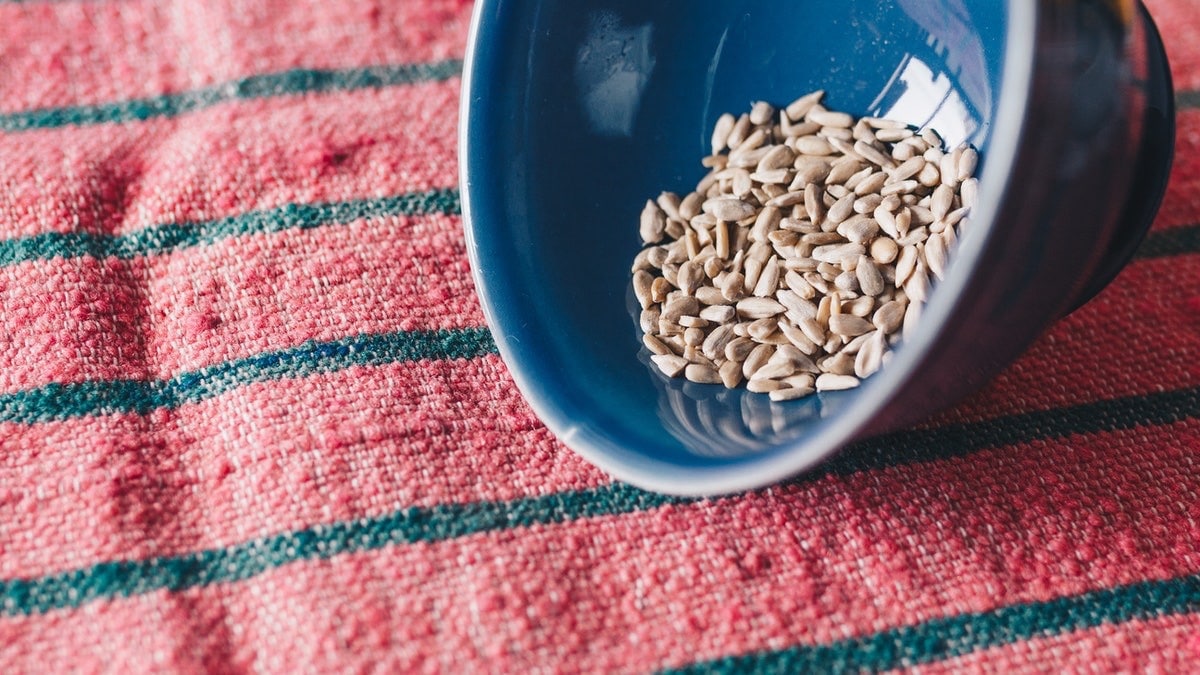
Sunflower seeds can be a snack as they provide healthy fats and minerals. We invite you to know the benefits of sunflower seeds and why you should incorporate them in your diet.
In Mexico, the consumption of sunflower seeds is very popular. However, due to its benefits, its consumption has become popular around the world.
Where do sunflower seeds come from?
Sunflower seeds are sunflower fruits, or scientifically known as Helianthus annuus, plant native to America. However, today, it is planted in different parts of the world, including India, China, Romania and the United States.
These seeds are obtained from the large heads of sunflower flowers, which can measure up to 12 inches in diameter. In fact, it is estimated that a single head can contain up to two thousand seeds.
Sunflower seeds are also used to produce oil, which is the fourth most consumed in the world.

What are the benefits of sunflower seeds?
Among the main benefits of sunflower seeds are:
Reduce inflammation
According to a study of more than 6,000 adults who consume at least sunflower seeds five times a week have 32% lower C-reactive protein levels, compared to people who do not consume these seeds.
If you know that C-reactive protein is an inflammatory marker, which is linked to an increased risk of heart disease and type 2 diabetes.
Prevention of heart disease
Another great benefit of sunflower seeds is the prevention of heart disease. This is because these seeds provide magnesium, a mineral that, in various investigations, has been shown to reduce blood pressure.
Besides this sunflower seeds can lower blood pressure, It also provides linoleic acid, which helps the blood vessels to relax and, consequently, lowers cholesterol.
Similarly, a review of 13 studies found that people who consume more Linoleic acid has a 15% lower risk of heart attack and a 21% lower risk of dying from heart disease.
Also, a small study of 50 adults showed that an extract of sunflower seeds could reduce cholesterol, lose weight and lower body fat.
Keep your skin and bones healthy
These seeds provide omega-6 fatty acids, which are essential for healthy skin. These fatty acids help prevent skin conditions such as dermatitis and aging.
In addition, sunflower seeds are an abundant source of zinc and a mineral that, along with magnesium, calcium and phosphorus, contribute to healthy bones.
Controls glucose
Some research suggests that consumption 30 grams of sunflower seeds once a day along with a healthy diet could reduce fasting glucose by 10% in six months.
This hypoglycaemic effect may be due to the fact that these seeds contain chlorogenic acid, a compound that can reduce the speed at which the stomach processes carbohydrates and therefore can slow down the release of glucose.
Although several studies have shown that one of the benefits of sunflower seeds is blood glucose control, the scientific community believes that more research is needed to support this.
What is the nutritional contribution of sunflower seeds?
30 grams of peeled sunflower seeds offers:
| Calories | 165 kcal |
| Protein | 5.48 g |
| Grease | 14.1 g |
| Carbohydrates | 6.82 g |
| Fiber | 3.15 g |
| Vitamin E | 7.4 g |
| niacin | 2 mg |
| Football | 19.8 mg |
| Magnesium | 36.6 mg |
| Zinc | 1.5 mg |
How many sunflower seeds can you eat a day?
The recommendation is to consume ¼ cup of sunflower seeds a day because, although they are very nutritious, they also provide calories.
What happens if you eat a lot of sunflower seeds?
Sunflower seeds are generally safe for most people. However, there are people who may be allergic to them; In this case, you should avoid consuming them.
On the other hand, it is important to note that eating a lot of sunflower seeds can cause weight gain, as 30 grams provides 165 calories. For this reason, it is advisable to eat them in moderation and as part of a healthy diet.
As you can see in this text, the benefits of sunflower seeds are many. For this reason, it is worth incorporating this food in the diet to give variety to the diet when you eat them as a snack or when you add them to baked goods, cereals or fruits.
With information from Medical news today, HealthLine Yes WebMd.